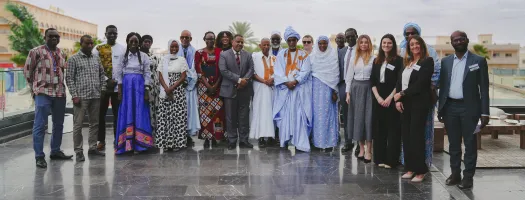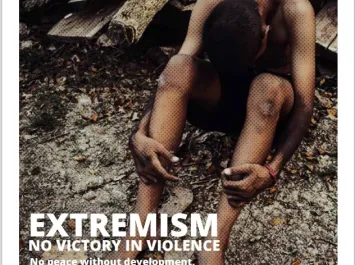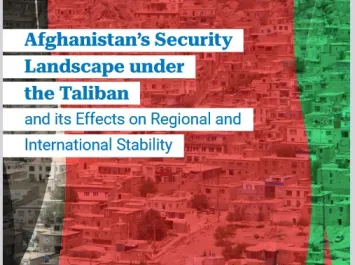Increasing instances of violent extremism and the effects of rapidly proceeding climate change converge into newfound threats in West Africa, demanding urgent and coordinated action.
Germany is leading this response through a strategic partnership with UNICRI, focusing on Mauritania. This commitment was highlighted at the recent “Climate Talks” conference in June 2025, hosted by the Permanent Mission of Germany to the United Nations in New York.
In his opening remarks, Ambassador Thomas Zahneisen highlighted the urgent need to address this often-overlooked issue, citing examples of climate-induced instability fuelling organised crime and extremist recruitment throughout Africa. In West Africa, specifically, temperatures are rising at a rate 1.5 times the global average, exacerbating resource scarcity, food insecurity, and social tensions in the process. Already, experiences in East Africa demonstrate the far-reaching consequences, with deteriorating living conditions already providing recruitment opportunities for terrorist groups.
In response to this, the German Federal Foreign Office supports the United Nations International Crime and Justice Institute (UNICRI) in a phased project to deliver practical solutions for Mauritania and the larger region. Phase one, which was completed in 2024, culminated in the development of a practical guide for the region, built through consultations with 35 stakeholders in Dakar and 28 in Nouakchott. The project prioritizes inclusive, locally-led solutions. Workshops and consultations actively engaged women, youth, and marginalised groups, recognising their unique expertise and vulnerabilities. This bottom-up approach, shaped by local knowledge and gender sensitivity, is key to developing effective and sustainable strategies for Mauritania and West Africa in general.
Ambassador Thomas Zahneisen showcased this methodology, emphasizing its locally-driven approach to empower stakeholders with effective climate and extremism risk analysis tools. Phase two of Germany’s commitment is currently in the planning stage and will translate the findings of phase one into action. Phase two will identify high-risk zones, gather field data via surveys and focus groups, and develop targeted interventions.
Germany’s commitment to a sustainable and secure future extends well beyond Mauritania. Germany is also co-leading an initiative within the Global Counterterrorism Forum (GCTF), partnering with Kenya, to advance the understanding of the complex security/climate nexus. Project participants underscored the need for integrated responses, network-building, and international cooperation to achieve lasting peace and resilience across the Sahel.
Germany is a reliable partner in the Sahel and will continue to support countries in the region on their path towards stability and peace.
Source: German Federal Foreign Office



